| |
|
|
|
|
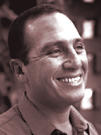 |
|
 |
|
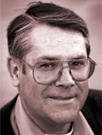 |
| Moises Cuevas Vasques, Mexico,
is the director of AALTERMEX and its training and research
center in organic Bioin-tensive methods. He is an agricultural
engineer, with additional education in agricultural economy,
and has done doctoral studies in sustainable agriculture in
Cuba. |
|
Padre Julio Cesar de la Garza, Spain,
is a Catholic priest and the director of the “La Milpa”
project in South Nuevo Leon, Mexico, where there are three
demonstration centers in arid zones. He gives four courses
every year for 60 people each. |
|
John Doran, USA, is a soil
scientist with USDA Agricultural Research Service and professor
of Agronomy at the University of Nebraska, Lincoln. For over
27 years, he has conducted research on microbial ecology as
it relates to the development of sustainable management systems. |
| |
|
|
|
|
 |
|
 |
|
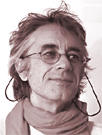 |
| Felicia Echeverria Hermoso, Costa Rica,
is the manager of the Organic Agriculture National Program
of the Ministry of Agriculture in Costa Rica. She has interests
in sustainable development, producer training, and marketing. |
|
Jaime E. García González,
Costa Rica, PhD in Agricultural Science, Extensionista
and Researcher for the Environmental Education Center in the
State University, professor in the Biology School of the University
of Costa Rica, founder of the Organic Agriculture National
Association and the Executive Committee of the Organic Agriculture
Costa Rican Movement. Author of many books and various articles
about pesticides and organic agriculture. |
|
Dominique Guillete, France
has worked for the protection of food biodiversity and production
of organic seeds for 12 years. He is the chairman of the Kokopelli
Association in France, an organization dedicated to seed production
and seed production teaching. He is the author of Les
Semences de Kokopelli. |
| |
|
|
|
top |
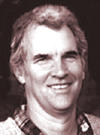 |
|
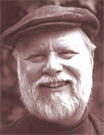 |
|
 |
| Don Lotter, USA, has a Ph.D.
in Agroecology from the University of CA, Davis where he focused
on the soil ecology of organically and conventionally managed
vineyards. His research includes soil fertility and yields
at the Rodale Institute. He writes for the Rodale Institute's
New Farm Magazine. |
|
John Jeavons, USA, is the director
of Ecology Action, a 32-year-old nonprofit organization. He
is known internationally as the leading developer of small-scale
food production techniques utilizing the GROW BIOINTENSIVE
method. He is the author of the bestselling book, How
to Grow More Vegetables,...Grains and Other Crops. |
|
Juan Manuel Martinez Valdez, Mexico,
is the director of Ecología y Población, (ECOPOL),
Ecology Action’s nonprofit affiliate in Mexico and Central
and Latin America. ECOPOL teaches families to raise food Biointensively.
Over 125,000 Biointensive gardens have been initiated in all
of Mexico’s 32 states. |
| |
|
|
|
|
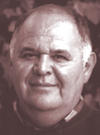 |
|
 |
|
 |
| Gaspar Mayagoitia Penagos, Mexico,
is an Agronomist and has 20 years of experience in the Biointensive
Method. A certified Biointensive teacher, he works with NGOs
and the Catholic church in the Tarahu-mara Sierra in Chihuahua,
Mexico. Among his projects are the creation of a university
for the Tarahumara Indians. |
|
Patricia Mayagoitia Caraveo, Mexico,
began working with the Biointensive Method in Chiapas, Mexico,
when she was 5 years old. She interned at Ecology Action in
Willits, CA, in 2002. She now teaches the Tarahumara Indians,
studies International Relations and is a garden manager in
Santa Barbara. |
|
Steve Moore, USA, is a farmer
at the Mid-Atlantic Health Awareness Institute. He is also
the former director of the Center for Sustainable Living where
he taught, did research and managed a large CSA farm. He continues
to develop the use of Biointensive mini-farming methods within
a passive solar commercial greenhouse. |
| |
|
|
|
|
 |
|
 |
|
 |
| Reinhold Muschler, Costa Rica,
is a specialist in many kinds of compost, especially those
used for tropical farms. His comparative presentations are
inspiring. Previously he has worked at CATIE. One of his current
interests is the synthesizing of compost effects for plant
nutrition, soil food webs, pest suppression and conservation. |
|
Fabian Pacheco Rodriguez, Costa Rica,
has degrees in both Agronomy and Wildlife and Forest Management
and has studied organic agriculture. He has worked with the
social ecology movement for 10 years and is active in Oilwatch
Meso-america, a movement to stop GMO expansion. He is a supporter
of the indigenous movement. |
|
Jack Perella, Costa Rica, is
the owner and director of Finca del Lago, an experimental
station for organic agriculture in San Pedro de Coronado,
Costa Rica. The finca farm is a family project and has an
integrated ecology including a lake, river, forest, animal
refuge, and conference center. In an earlier life he was a
college professor and lawyer in California. |
| |
|
|
|
top |
 |
|
 |
|
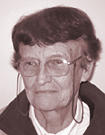 |
| Fernando Pia, Argentina, is
the director of CIESA (Centro de In-vestigación y Enseñanza
en Agricultura Sosten-ible). He is an agronomic engineer and
has been working for a Rural Extension Service in Argentina
for 19 years. He has taught Biointensive to nearly 600 people,
many of whom are teaching others. |
|
Robérto Pozo Oros, Bolivia,
is an Agronomist. He is responsible for the productive economic
processes in the ACLO Foundation (Loyola Cultural Action)
in Sucre. He has 14 years of experience working with Quechua-speaking
communities. He received Biointensive Method training in Mexico
in 2003. He has trained 80 farmers in his work area. |
|
Ana Primavesi, Brazil, is a
retired Agronomist and a PhD in Soil Management and Crop Nutrition.
She is also a Science Counselor for the Mokiti Okada Foundation,
author and a contributor to technical newspapers, a founding
member of the Organic Agriculture Society in Brazil, of MAELA
in Latin Amer-ica and of IFOAM—Latin America. |
| |
|
|
|
|
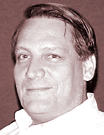 |
|
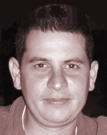 |
|
 |
| Guillermo Romero Ibarrola, Mexico,
is a specialist in Politics and Agro-Nourishing Economy. He
has studied at the Iberoamericana Univ., the National Univ.
of Mexico and Cornell Univ. He promotes sustainable development
in agro-ecology and environmental education and has had positions
in both public and private institutions. |
|
Ricardo Romero, Mexico, is
an Agronomist from Chapingo University and owns an ecotourist
center and farm called “Las Cañadas” in
Veracruz, Mexico. He was trained in the Biointensive Method
at Ecology Action in Willits, California, and now has a 110-bed
garden that produces continuously. He teaches visitors and
peasants from the region every year. |
|
Dr. Feliciano Ruiz Figueroa, Mexico,
is an Agronomist specializing in soil and a research professor
at the Autonomous Univer. of Chapingo, Mexico. He is the President
of the Consejo Nacional Regulador de Agricultura Orgánica
A.C. He has taught organic agriculture and has conducted studies
on environmental impacts on natural resources. |
| |
|
|
|
|
 |
|
 |
|
 |
| Professor Kate Scow, USA, performs
research at the University of California, Davis, on the influence
of environmental variables and management practices on microbial
community structure and function in soils, and the effects
of pollutants and fumigants on microbial populations in agricultural
and contaminated soils. |
|
Ángel Mario Suero, Cuba,
has a PhD in Agroecology and Sustainable Agriculture, is the
President of the Agrarian Thinking Professorship “Alvaro
Reynoso”, a professor at the Agrarian University in
La Havana Cuba, and a founding member of the Professorship
Sustainable Agriculture. He coordinated the first course on
the Biointen-sive method in Cuba. |
|
Mecedes Torres Barreiro, Ecuador,
a psychologist with interests in self-employment, development
and society, is director of ADYS, in Ecuador. This organization
has organized 5,000 Quechuas, Chachis, Aiwas, Montubios and
Eperas families. Her project has numerous demonstration centers. |
| |
|
|
|
|
 |
|
Additional Presenters:
ACNUR Representative:
Colombian Refugees and the Biointensive Method in Ecua-dor’s
borderline.
FAO Representative: World
Agriculture Towards the Years 2015-2030.
PNUMA Representative:
How to Face the World’s Weather Changes
UNICEF Representative:
Child Malnutrition in Latin America |
| José Luis Salomón, Paraguay,
is a chemist and principal at the Agricultural School San
Francisco de Asis, which belongs to the Paraguayan Foundation.
His main goal is to enable the school to become self-sufficient.
To this end he introduced the Biointensive Method. All the
production at the Agricultural School is 100% organic. |
|
| |
|
|
|
|